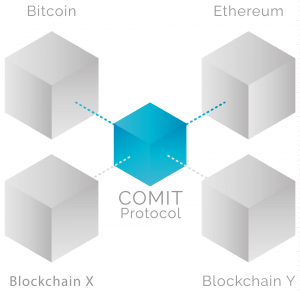The team at CoBloX have performed the world’s first Lightning to ERC-20 atomic swap.
CoBloX as a project is exploring the disruptive potential of blockchain technologies. They are looking to do this by performing impactful research on blockchain scaling.
During their demo, they swapped a non-native asset to another asset on a layer-2 network. Or, to simplify, they swapped 10 PAY tokens (an ERC-20 token on Ethereum) for 71,240 Satoshi on the Lightning Network (a protocol for layer-2 scaling on the Bitcoin blockchain).
To set up atomic swap proof of concept, the team split the initial setup into two Ethereum transactions: the contract deployment and then the ERC-20 transfer call (see the links to check out the blockchain contracts).
Due to some technical challenges, the team are so far “only able to do ERC-20 to Lightning and not the other way around.” The team are still looking at ways to address this issue, but for now, Lightning will not be part of the initial open source release of the COMIT protocol.
Cross-blockchain interoperability
CoBloX have developed the COMIT protocol: an open source protocol facilitating trustless cross-blockchain applications.
They describe how the basic structure of the internet and COMIT is exactly the same, claiming: “In today’s world, the exchange of value works similar to the exchange of information pre-internet: point-to-point in an enclosed system.”

Benefits of the network include instant, frictionless, and cheap payments for users, access without limitations to any asset or business process connected to a blockchain, revenue streams for liquidity providers, and adoption based on existing networks (with a cheap and secure infrastructure).
“The COMIT network can provide the same final and elegant solution as the internet did for information.”
There are, however, some minimal requirements for a blockchain to be COMIT-compatible. These elements include double-spend protection, multi-sig transactions, time-lock transactions, and hashing functions (like SHA256)
Open source
CoBloX have decided to release everything about COMIT as open source software, stating: “We don’t want people to trust that COMIT does what it claims to do. They should be able to verify each and every step themselves.”
“We strongly believe in open source software, which is another reason why we want to give something back to the community.”
If you are interested to check out the code yourself, take a look at the COMIT GitHub repository.
Disclaimer: The views and opinions expressed by the author should not be considered as financial advice. We do not give advice on financial products.
